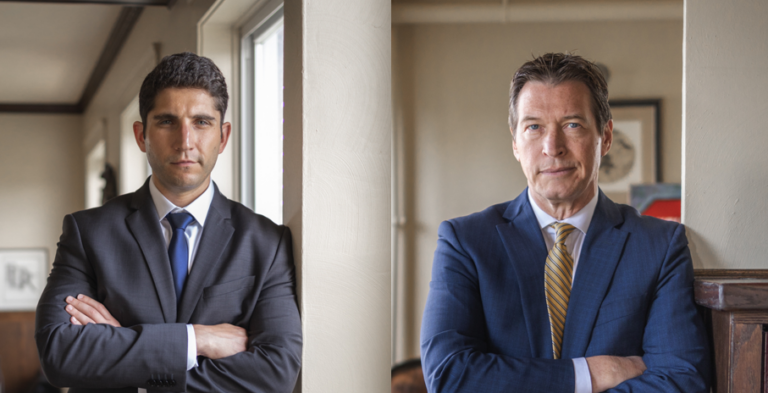Guns. Love them or hate them, they are everywhere, and, for better or for worse, they are deeply embedded within the American way of life. We live in Ohio – not quite the Wild, Wild West (surely, only the Midwest), but nonetheless, a particularly gun-friendly state. When Gov. DeWine signed Senate Bill 215 into law last month, Ohio became even gun-friendlier.
For the sake of a brief background, the state of Ohio is an “open carry” state that permits the private sale of firearms. That means that individuals who are authorized to possess a firearm can legally walk into a gun show, buy a handgun and a holster without any background check, and then walk down Main Street, Ohio, day or night, with their firearm holstered on their hip and “open” for everyone to see—no license necessary.
Until recently, Ohio required individuals who wished to carry a concealed firearm to obtain a license from the State. To obtain such a “CCW (Carrying a Concealed Weapon) license” applicants had to pay a fee, go through a background check, complete several hours of firearms training, complete several hours of classroom education about firearms and finally, complete a certain number of hours of “range time” to demonstrate basic proficiency with a handgun. Furthermore, Ohio law required anyone who carried a concealed firearm with a CCW license to “promptly inform” any law enforcement officer that they were armed if approached by an officer for any law enforcement purpose, such as a traffic stop.
However, S.B. 215, which becomes effective June 13, is commonly referred to as “Constitutional Carry,” referring to the right to bear arms under the U.S. Constitution’s 2nd Amendment, provides that a person who is a “qualifying adult” is not required to obtain a concealed handgun license in order to carry a concealed handgun that is not a “restricted firearm.” Under the law, a “restricted firearm” means a firearm that any law in Ohio prohibits the person from possessing, having or carrying.
Additionally, a “qualifying adult” means a person who is (a) 21 years of age or older; (b) not legally prohibited from possessing or receiving a firearm under federal law or under Ohio law, and (c) who has never been convicted of a disqualifying felony or misdemeanor offense (such as domestic violence), is not the subject of a protection order, and has never been adjudicated mentally defective or incompetent. While this is not an exhaustive list of each circumstance that would disqualify someone from being a “qualifying adult”, the list aims to prevent those convicted of (or even charged with) serious drug offenses and/or offenses of violence from reaping the benefits of the new law. Similarly, someone who is drinking, or consuming alcohol or drugs also does not meet the definition of a “qualifying adult” under the new law.
In short, the new law eliminates all license requirements for a “qualifying adult” to carry a concealed handgun in the state of Ohio, including the fee requirement, the background check requirement, the educational requirement and even the firearm proficiency requirement. And the former rule concerning “prompt disclosure” to law enforcement? The new law does away with that too, though, not completely.
S.B. 215 serves to loosen the former “prompt disclosure” rule and now only requires a “qualifying adult” who is armed with a concealed handgun to inform an officer that they are armed “before or at the time the officer asks if the person is carrying a concealed handgun.” See S.B. 215; R.C. 2912.12(B)(1).
Some people, such as Jason Ouimet of the National Rife Association, who believe that the legislation protects the second amendment rights for all law-abiding Ohioans, champion the new law. Proponents argue that “any right requiring a fee or government permission slip isn’t much of a right at all” and the law “does not expand access to firearms or allow any new categories of people to carry”.
Opponents of S.B. 215 point out the obvious concerns inherent in the new law’s loosening of the state’s oversight and regulations of firearms. Ultimately, they argue that S.B. 215 will increase gun violence, make guns more available to people and make Ohio more dangerous for residents and law enforcement alike. Even some 2nd Amendment supporters, such as state Rep. Joe Miller, a Democrat, has stated that he believes the legislation “goes too far.”
For it or against it, S.B. 215 and constitutional carry is now the law in Ohio (as it is in twenty-two other states). Whether the new law will have the negative effect of increased gun violence in Ohio and making residents and law enforcement less safe, remains to be seen. Qualifying adults can still take that stroll down Main Street, Ohio, but now, with their handgun concealed on their person and out of view – no license necessary.
Larry W. Zukerman is the managing partner of Zukerman, Lear & Murray, Co., LPA in Cleveland and Adam M. Brown is an associate attorney.








